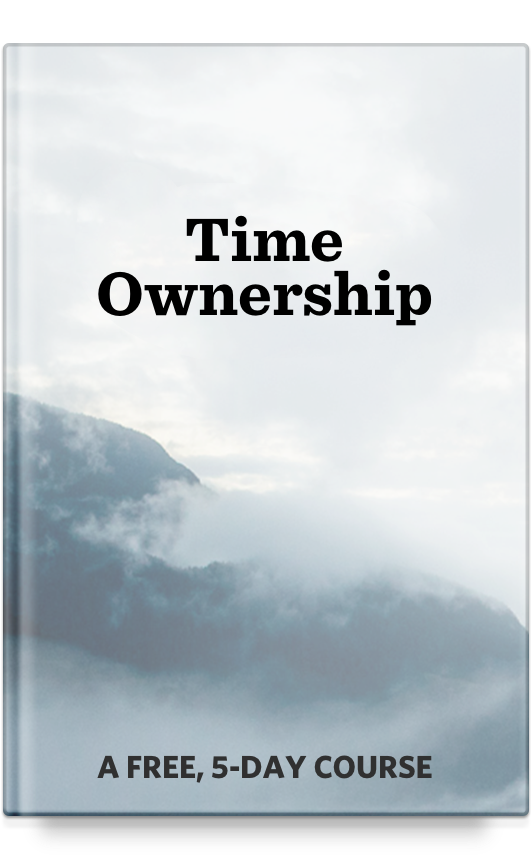This week, my wife and I decided to part with our collection of storage bins.
There are few things so wonderful as throwing out junk you no longer use or need. What’s better than getting rid of 25 storage bins? Also getting rid of everything that was in those bins.
To be honest, I’m not 100% sure what a “minimalists” is, exactly. In my understanding, it’s about having what you need and use, without all the extra.
Joshua and Ryan — The Minimalists — define minimalism as “a tool to rid yourself of life’s excess in favor of focusing on what’s important—so you can find happiness, fulfillment, and freedom.”
By that definition, maybe the Blancs are minimalists. We love to get rid of anything that we don’t actively use. And, I have to say that it’s liberating to not have a ton of stuff sitting around collecting dust.
I’d say that we really hit our stride with getting rid of things about a year ago when we moved. (If you ever want to be rethink the importance of all the stuff you own, pack it up into a bunch of boxes, spend a few days moving those boxes, and then pack all that stuff and find somewhere to put it.)
When we were preparing to sell our old home we went through the closets and cupboards and packed up everything that wasn’t absolutely essential.
For example, about 80% of our coffee mugs and water glasses were packed up into boxes. We left out just what we needed for regular day-to-day living.
The advantage of all this “pre-purge cleaning” was meant to be a strategic move to help our home sell faster.
By packing up about 80% of our stuff, it made the available storage in our home seem “bigger” to potential buyers.
When a buyer is walking through the house and opening closet doors and kitchen cabinets, you want just the right amount of things in storage. If they see a few items that are neatly stored on the shelves, then it makes that space feel useful and full of potential. With no items at all, the space feels barren. But with too many items, the space feels cramped.
From the the time we packed up all our non-essential items until the time we actually moved out of our home, it was about 3 months. We discovered that we really enjoyed having nothing around but that which was essential.
Thus, once we moved in to our new home and we were unpacking things, we chose to get rid of a lot of stuff.
We had already gotten rid of much in the process of packing up. We would ask ourselves, as we were packing, “Do we want to move this?”
Then, everything that survived the initial move, went through a second round of vetting as we were un-packing: “Do we want to find a place to store this?”
That was a year ago. And we are still working on slimming down the amount of “unused” items.
It’s liberating to only own things that we use regularly. Nothing in our home is here for “just in case”.
Everything we own has a use.
Of course, some of those “uses” include “being sentimental and important”. Such as my comic-book collection from when I was a kid or the box of photos from before we owned iPhones.
The 20/20 Just-in-Case Rule
The aforementioned Minimalists have something they call the 20/20 Rule.
The idea is this: If you have something you’re keeping “just in case”, then you should get rid of it. Because if a situation ever does arise where you need that item, you could probably replace it for less than $20 and within less than 20 minutes.
For me, I started getting rid of my just-in-case items because I would always forget that I had the item in the first place. So, when I needed an item, I’d go to the store and buy a new one. Only to discover later that I already had one that I’d been holding onto “just in case”. Ugh.
A Few Tips
Not to get all nerdy, but there are all sorts of “life hacks” you can apply to the act of de-cluttering. And why not?
This is something we talk about in The Focus Course.
Here are some examples:
- For clothing: Take all the clothes hangers in your closet and turn them around. Whenever you wear something, return it to the closet with the hanger facing the right way. At the end of a season or at the end of the year, whichever hangers are still turned around are the clothes you don’t wear — so give them away.
-
For miscellaneous stuff: If you struggle to part with things, consider putting them in a box and taping that box shut. Put the date on it, and in 6 months or a year, if you can’t remember what’s in the box then just go ahead and give it away.
-
For sentimental items: Consider journaling about the item and the memories it reminds you of before you give it away. And if there are many sentimental items you have surrounding a person or event, consider keeping only the most sentimental (or perhaps the most resilient) item.
After my grandfather passed away, the only thing of his that I kept was a pair of sunglasses I found in his desk. It was a single, simple item that reminded me of him and it was all I needed. Not to mention, the sunglasses were extremely practical (until I lost them, but that’s not the point).
Have fun!
By the way, if you haven’t already, you should definitely check out Marie Kondo’s book, The Life-Changing Magic of Tidying Up.
